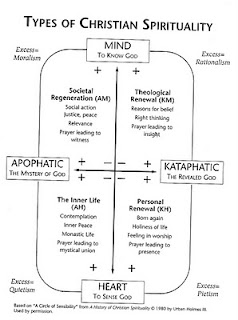NT Wright's The Resurrection 3/4
The point is not, in other words, that the new humanity will exist in a place called 'heaven'. Rather, it will originate there
 NT Wright takes a great deal of time working through particularly Paul. Trying to understand the concept of resurrection and its implications in terms of new creation as a first century Christian. In others words, what actually was Paul saying.
NT Wright takes a great deal of time working through particularly Paul. Trying to understand the concept of resurrection and its implications in terms of new creation as a first century Christian. In others words, what actually was Paul saying.In particular he starts to undermine any concept that suggests that there is a framework that can explain the resurrection body within ideas of 'astral immortality'. In other words:
"The point is not, in other words, that the new humanity will exist in a place called 'heaven'. Rather, it will originate there, where Jesus himself currently is in his own risen and life-giving body; and it will transform. the life of those who are presently located on earth and earthy in character.." (pp 355)
This is where his arguments pick up speed - it is quite a shock to discover that any concept of heaven you may have grown up with actually may have been more informed by Philo and Plato and Gnosticism both ancient and modern rather than the New Testament. The heart of NT's conversation here is that:
If eschatology is built upon a hope that rests upon eternal rest within a disembodied heaven, NT Wright leaves us in a place where at the very least we need to examine what has shaped our eschatology.The point is not to escape from earth and find oneself at last in heaven, but to let the present 'heavenly' life change the present earthly reality. Heaven and earth, after all, are the twin partners in the creation which, at the heart of the passage Paul has in mind throughout this chapter, the creator had declared to be 'very good'. (ibid)
He leaves some questions, what is our eschatological hope? What then is our inheritance? What then is heaven?
------------
NT Wright's The Resurrection 1/4
NT Wright's The Resurrection 2/4

Comments
He was working with us on rather obscure song with a final verse as follows
Show me thy face, the heaviest cross
Will then seem light to bear;
There will be gain in every loss
And peace with every care.
With such light feet the years will fleet,
Life seem as brief as blest;
Till I have laid my burden down
And entered into rest.
I understood this to imply that our earthly (and possibly unpleasant) life would seem to pass quickly until we reached our final destination elsewhere ie Heaven. I’m not sure if that’s what the writer intended - but that’s how I understood it.
But Eric Ball said something that surprised me. I can’t really remember the exact words he used but my memory is of him explaining that “rest” did not necessary mean death. I understood him to mean that this pleasant state was what happened when we enter a relationship with God ie what we experience in eternity is actually a continuation of something that begins on earth.
I hope I’ve understood and remembered that accurately.
I’m reading lot’s of things recently that are challenging, what you describe as, concepts that I’ve grown up with.
Interesting stuff.